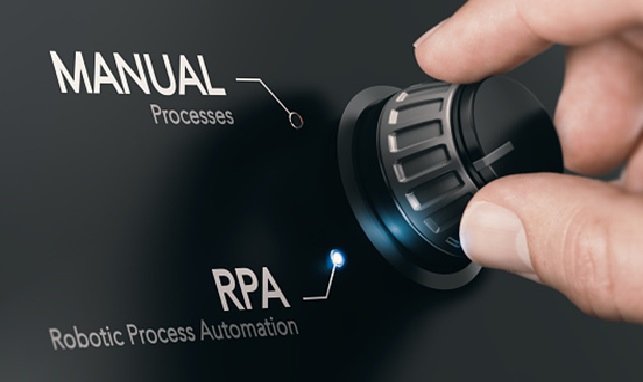
Artificial intelligence is defined by John McCarthy as the ability of a computer program or a machine to think and learn. It is also a field of study which tries to make computers "smart". They work on their own without being encoded with commands.
Artificial intelligence in the field of Medical Science mainly uses computer techniques to perform clinical diagnoses and suggest treatments. AI has the capability of detecting meaningful relationships in a dataset and has been widely used in many clinical situations to diagnose, treat, and predict the results. In Medical AI, the focus is on the viability and feasibility to incorporate various computer AI techniques in medical information modelling and clinical procedure deployments. The state-of-the-art AI methodologies have shown great capabilities and capacities in recognition of meaningful data patterns and thus been widely experimented as tools for clinical trials, especially, to aid the decision making in each phase for diagnoses and subsequent treatments, as well as prognoses and projections.
Artificial intelligence in healthcare is the use of complex algorithms and software to emulate human cognition in the analysis of complicated medical data. Specifically, AI is the ability for computer algorithms to approximate conclusions without direct human input.
From chronic diseases, like cancer, to radiology, AI is being leveraged to deploy efficient and precise inventions that will help take care of patients suffering from these diseases and hopefully find a cure for them. AI provides several advantages over traditional methods of analytics and making clinical decisions.

Artificial intelligence (AI) and machine learning solutions are transforming the way healthcare is being delivered. Health organizations have accumulated vast data sets in the form of health records and images, population data, claims data and clinical trial data. AI technologies are well suited to analyse this data and uncover patterns and insights that scientists could not find on their own. With deep learning from AI, healthcare organizations can use algorithms to help them make better business and clinical decisions and improve the quality of the experiences they provide.
Using large datasets and machine learning, healthcare organizations can find insights faster and more accurately with AI, enabling improved satisfaction both internally and with those they serve.
By examining data patterns, AI technologies can help healthcare organizations make the most of their data, assets and resources, increasing efficiency and improving performance of clinical and operational workflows, processes, and financial operations.
Healthcare data is often fragmented and in various formats. By using AI and machine learning technologies, organizations can connect disparate data to get a more unified picture of the individuals behind the data.
With massive volumes of health data and growing responsibilities, clinicians are struggling to find the time to keep up with the latest medical evidence and still provide patient centric care. By applying machine learning technologies to the latest biomedical data and electronic health records, healthcare professionals can quickly mine accurate, relevant, evidence-based information that has been curated by medical professionals

All said and done on the technological advancement, still the question is, how far the technology can have its impact in the rural areas, where even today around 45% of the rural population don’t have internet access.
There is great optimism that the application of artificial intelligence (AI) can provide substantial improvements in all areas of healthcare from diagnostics to treatment. It is generally believed that AI tools will facilitate and enhance human work and not replace the work of physicians and other healthcare staff as such.
Artificial intelligence is allowing us to rethink the way that we treat diseases and disabilities. The combination of AI and Big Data, in addition to helping with medical diagnosis, coupled with biological delivery systems, can significantly alter the way we treat a host of diseases like cancer, autism, some mental illnesses, and rare genetic illnesses. Combining AI, big data, robotics, gene therapy, and medical research has provided a host of possibilities to cure these types of diseases as also helping people with disabilities live their lives better.
India presently is in a unique position for implementing AI in Healthcare for Indian and International Companies. With large amounts of data and many new start-up companies, India can address many healthcare related problems through AI.
AI in Healthcare in India is currently augmenting human capacity rather than replacing Human labour altogether. However, lack of regulatory clarity on issues of data, design and certification systems, ethical data collection and processing hamper the introduction of A.I. in India at present.
LSW sought inputs on the application of AI in two specialized areas, dentistry and Cancer, from respective specialists on Dentistry and Cancer
Dr. Jyotsna Rao, Research Director, International Stem cell Services Ltd, Bengalaru

Artificial Intelligence in Diagnosis and Treatment of Cancer
AI in Healthcare industry is a fast and upcoming field which will accelerate diagnosis and enable treatment options based on a multi – platform understanding. AI helps in assimilation of prior information and based on historical data it helps with a superior prognosis in patients.
Cancer research in lungs, breast, ovary, and pancreas has innovatively explored AI and ML to provide an evidence-based approach in the field. While some studies investigated the use of AI for breast screening based on ethical and social issues of the adoption and radiologist performance, there are evidences of new findings like DL supporting the discovery of lymph node metastases from breast cancer. Similarly, by adopting CADe ML models in colorectal screening, endoscopic images and videos were processed in record time and gave allowance for real-time recognition of polyps with an excellent and high accuracy. Other ML learning approaches have been used to detect mismatch repair deficiency (dMMR) in colorectal screening. 23 In liver cancers, AI approaches using CS-SVM on liver cancer rehabilitation groups found that the methods can explicitly project the time and location of cancer reoccurrence. While the adoption of AI and ML for cancer prediction, diagnosis, and rehabilitation is increasingly discussed among researchers, accessing the scope, progress, and achievement may serve as a reference for future research and applications of innovative technologies.
Since the early 1970s, AI successfully made revolutions in medicine. Oncology research focused on decoding the molecular onset of cancer by understanding the complex biological architecture of cancer cell proliferation. Moreover, AI in clinical decision-making process was believed to increase the chances of early disease diagnosis and prediction by using next-generation sequencing (NGS) and high-resolution imaging techniques. There was a recent successful application of AI in cancer classification through gene selection to determine whether those genes were active, hyperactive, or silent in normal or cancerous tissue. On the other hand, the use of support vector machines in skin cancer diagnostic can potentially provide low-cost universal access to vital diagnostic care, cancer gene expression signatures using artificial neural networks, and in breast cancer research prediction and prognosis.
Dr. Jyotsna Rao, International Stem cell Services Ltd, Bengaluru
Email: jyotrao@gmail.com
Dr. Himanshu Manudhane, MDS. Periodondist

Artificial intelligence in Dentistry
Dentistry I must say is a constantly evolving field with new technology coming up every now and then.
Modern dentistry is totally technology driven. Right from determining the exact shape, size or colour of your new tooth to performing a complex surgical procedure, artificial intelligence helps us in all. Even the appointment scheduling, diagnosis and treatment of your dental problems is totally technology driven.
For instance taking dental impressions with some clay like materials inside the mouth which most patients dread about, is getting replaced with devices which can directly scan your teeth. The accompanying soft wares which are AI driven even helps us to know whether all the required fields have been recorded precisely or not, and corrections can be made immediately. The CAD CAM soft wares help the laboratory to digitally design the entire crown on the computer and directly mill by the machine. This is like a magic wand, where in the human role is only for giving the commands on the computer and the execution is done directly by the machine.
Artificial intelligence also helps us to plan all the dental surgeries prior to the procedure.
A dental implant can be placed in the jaw with digital planning with subsequent no need of any stitches thereby reducing patient morbidity. However any technology comes with its own caveats. Secure patient data is one of the major concerns. Plus with the advances the cost of the dental treatment too shoots up which in India is also a major concern since it's not covered under medical insurance.
Also access of these devices in the rural areas might be a concern.
To summarise, AI technology driven treatment is in fact the standard of care in the current era thereby improving treatment outcomes and making dental treatments a smoother one!
Dr. Himanshu Manudhane, MDS, Periodontist
Email: himanshumanudhane@gmail.com
LSW lifescienceworld
www.lswlifescienceworld.com